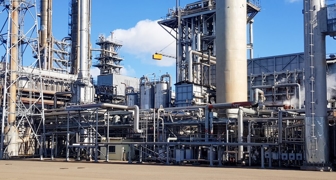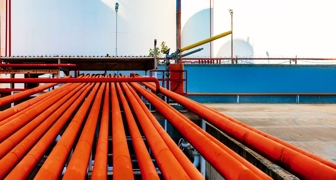Shelter-in-Place Issued After Fire Erupts at Marathon Refinery in Texas City

Shortly after noon on Saturday, June 14, 2025, emergency officials ordered residents in parts of Texas City, Texas, to shelter indoors when a fire broke out at Marathon Oil’s Galveston Bay Refinery. The precaution covered neighborhoods from Highway 146 east to Bay Street and between 21st Street and Bay Street, while the Texas City Fire Department and Marathon’s in-house response teams worked to contain the blaze.
At 2:14 p.m., responders reported that the flames were under control and lifted the shelter order after perimeter air monitoring showed no threat to public health. Marathon confirmed that all personnel were accounted for and no injuries were reported.
About the Facility & Its Operator
Marathon’s Galveston Bay Refinery is one of the largest in the United States, formed in 2018 by combining two Texas City plants into a single complex with a crude-oil capacity of roughly 631,000 barrels per calendar day. The refinery produces gasoline, diesel, jet fuel, aromatics, and petrochemical feedstocks for plants along the Houston Ship Channel.
Refineries handle vast volumes of flammable hydrocarbons at high temperatures and pressures. Any loss of containment—whether at a furnace, pump seal, or piping manifold—can ignite quickly, releasing intense heat and potentially toxic smoke that endangers workers and nearby neighborhoods.
Why Refinery Fires Are Dangerous
- Intense Heat & Explosions: Burning hydrocarbons can trigger pressure vessel failures or radiant heat damage to adjacent units.
- Toxic Plumes: Smoke often contains benzene, sulfur dioxide, and other hazardous compounds that can irritate the eyes and lungs or may increase long-term cancer risks.
- Wind-Driven Spread: Gulf Coast sea breezes can shift quickly, pushing smoke over residential areas before responders can warn the public.
Because of these risks, Gulf Coast counties routinely issue rapid text alerts and siren warnings, instructing residents to shelter in place until air monitoring confirms conditions are safe.
What Happens Next
Investigators from the Texas Commission on Environmental Quality and the U.S. Chemical Safety and Hazard Investigation Board are expected to review the fire’s cause, Marathon’s emergency response, and any pollutants released. Arnold & Itkin will continue monitoring developments.
- Categories
- Plant & Refinery Accidents


